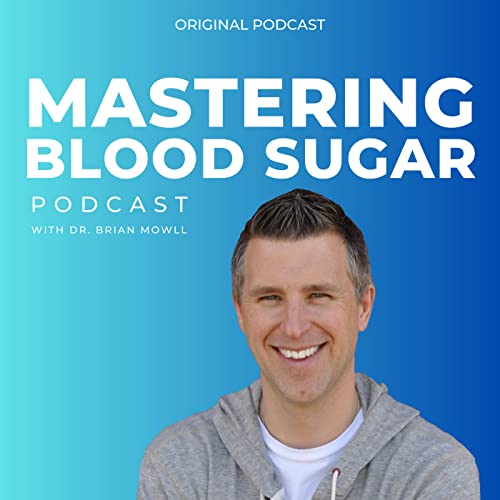In this podcast episode, Dr. Brian interviews Dr. David Perlmutter about his new book, "Drop Acid," which focuses on uric acid and how it relates to metabolic health, insulin resistance, type 2 diabetes, and other health issues. The two discuss the importance of understanding the role of uric acid in the body and how it can be managed through diet and lifestyle changes to support overall health. As a neurologist, Dr. Perlmutter became interested in uric acid's impact on the brain and explored this topic in his book.
Elevated Uric Acid Can Cause Disease
Elevated uric acid levels in the body can cause several diseases and conditions. Uric acid is a naturally-occurring substance in the body, but when it is present at higher-than-normal levels, it can cause many health problems. Uric acid is most commonly associated with gout, a type of arthritis, but it can also be linked to other conditions such as metabolic syndrome, hypertension, and type 2 diabetes.
Uric acid is produced when the body breaks down purines, which are found in certain foods such as organ meats, sardines, anchovies, and mushrooms. When the body cannot properly process and excrete the excess uric acid, it can build up in the bloodstream and cause problems.
Limit Added Sugar Consumption
In today’s modern world, limiting added sugar consumption is more important than ever. Fructose is a type of sugar found naturally in fruits and vegetables and is also added to many processed foods. Fructose is metabolized differently than other sugars and has been linked to higher uric acid levels in the body. Excess fructose intake has been linked to several metabolic issues, including hypertension, cognitive decline, and obesity.
Lower Uric Acid For Better Health
Uric acid is a by-product of fructose metabolism, and elevated uric acid levels can lead to serious health problems. High uric acid levels are associated with an increased risk of death from all-cause mortality, cardiovascular death, and stroke. Additionally, it can increase the risk of erectile dysfunction and lead to the formation of uric acid crystals in the blood vessels and joints.
Fortunately, there are ways to reduce uric acid levels and improve health. The first step is to identify and avoid hidden sources of fructose. This includes reading labels and being aware of the different names for added sugars, such as organic cane syrup. It is also important to limit alcohol consumption, especially beer, as it is rich in purines which can raise uric acid levels.
Key Takeaways:
[00:00:36] Uric acid and metabolic health.
[00:05:00] Uric acid's causative role.
[00:09:29] The dangers of fructose.
[00:13:05] Uricase mutation and body fat.
[00:17:23] Uric acid and fructose.
[00:23:51] Uric acid and erectile dysfunction.
[00:28:07] Uric acid and blood sugar.
[00:29:58] AMP kinase and uric acid.
[00:34:10] Paleo movement and our ancestors.
[00:38:14] Lowering uric acid levels.
[00:42:14] Neuroinflammation and Alzheimer's.
[00:46:13] Fruit consumption and uric acid.
Resources:
Website: https://www.drperlmutter.com
Drop Acid: https://www.drperlmutter.com/books/drop-acid/
Instagram: https://www.instagram.com/davidperlmutter/
YouTube: https://www.youtube.com/user/DavidPerlmutterMD
Facebook: https://www.facebook.com/DavidPerlmutterMd
Twitter: https://twitter.com/davidperlmutter
Support the show
 44 mins
44 mins 35 mins
35 mins 36 mins
36 mins 1 hr and 8 mins
1 hr and 8 mins May 29 202341 mins
May 29 202341 mins 56 mins
56 mins 39 mins
39 mins 53 mins
53 mins